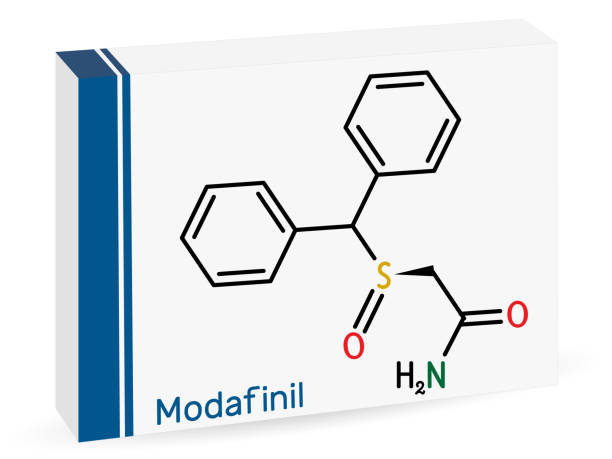Who Should Not Take Modafinil? Contraindications and Drug Interactions
Modafinil is a widely prescribed medication used to promote wakefulness in conditions such as narcolepsy, obstructive sleep apnea (OSA), and shift work sleep disorder (SWD). While effective for many, Modafinil is not safe or suitable for everyone. Understanding who should not take Modafinil—due to health conditions, potential drug interactions, or population-specific risks—is essential to ensure safe and effective use.
Medical Conditions That Contraindicate Modafinil Use
Cardiovascular Disease
Modafinil may increase systolic and diastolic blood pressure and heart rate. Individuals with uncontrolled hypertension, arrhythmias, recent myocardial infarction, or other serious heart conditions should avoid Modafinil or only use it under strict medical supervision with cardiovascular monitoring (Malcolm et al., 2006; FDA, 2015). Although clinical trials showed no significant acute hemodynamic instability, the stimulant effects can exacerbate underlying cardiac risks.
Psychiatric Disorders
Patients with a history of psychiatric illnesses such as bipolar disorder, schizophrenia, or psychosis should avoid Modafinil unless closely monitored. There is evidence that Modafinil may induce or worsen psychiatric symptoms, including mania, hallucinations, or agitation (FDA, 2015; StatPearls, 2025). Any emergence or worsening of psychiatric symptoms during treatment warrants immediate consultation with a healthcare provider.
Liver and Kidney Impairment
Because Modafinil is metabolized primarily by the liver and excreted through the kidneys, patients with significant hepatic or renal impairment are at increased risk of drug accumulation and toxicity. Dose reduction to half the usual dose is recommended in severe hepatic impairment, and caution with dose adjustments applies to renal dysfunction as well (Robertson & Hellriegel, 2003; FDA, 2015).
Neurological Conditions
Modafinil lowers the seizure threshold and may increase the risk of seizures in patients with epilepsy or seizure disorders. Such patients should avoid Modafinil or use it only if the potential benefits outweigh the risks, under specialist supervision.
Population-Specific Considerations
Pregnancy and Breastfeeding
Modafinil is contraindicated in pregnancy due to potential fetal risks such as intrauterine growth restriction and spontaneous abortion observed in animal studies, with insufficient human data to guarantee safety (FDA, 2015). It also passes into breast milk, and its effects on nursing infants are unknown, making it unsuitable for breastfeeding mothers.
Children and Adolescents
Safety and efficacy in individuals under 18 have not been established, and Modafinil is not approved for pediatric use. Potential risks and lack of long-term safety data warrant avoidance unless under specialist advice.
Elderly Patients
Age-related declines in liver and kidney function can alter Modafinil pharmacokinetics, increasing sensitivity to side effects. Lower starting doses and close monitoring are advised for elderly patients (Robertson & Hellriegel, 2003).
Important Drug Interactions to Avoid
CYP450 Enzyme Interactions
Modafinil induces CYP3A4 and inhibits CYP2C19, affecting the metabolism of many drugs (Robertson & Hellriegel, 2003). This can reduce efficacy or increase toxicity of co-administered medications metabolized by these enzymes.
Hormonal Contraceptives
Modafinil decreases the effectiveness of hormonal contraceptives such as ethinyl estradiol-containing pills, increasing the risk of unintended pregnancy. Alternative or additional contraceptive methods should be used during treatment and for one month after discontinuation (FDA, 2015).
Anticoagulants and Other Drugs
Drugs like warfarin may require closer monitoring of prothrombin time/INR due to altered metabolism when taken with Modafinil (FDA, 2015). Interactions with antidepressants, antipsychotics, anticonvulsants, and immunosuppressants like cyclosporine also require dose adjustments or careful observation.
Other Substances
Patients should avoid combining Modafinil with alcohol, other stimulants, or excessive caffeine, as these can potentiate adverse cardiovascular or nervous system effects.
Precautions and Monitoring Recommendations
Patients prescribed Modafinil, especially those with comorbidities or taking interacting medications, require regular monitoring of cardiovascular parameters, liver and kidney function tests, and mental health assessments. Dose adjustments based on clinical response and tolerability are essential for safe therapy.
Alternative Treatments for Those Who Should Not Take Modafinil
For patients who cannot safely use Modafinil, non-pharmacological options like cognitive-behavioral therapy for insomnia (CBT-I) and improved sleep hygiene may be effective. Pharmacological alternatives such as Armodafinil, solriamfetol, or traditional stimulants (methylphenidate, amphetamines) can be considered under medical supervision.
Conclusion
Modafinil is an effective wakefulness-promoting agent but is contraindicated or requires caution in individuals with cardiovascular disease, psychiatric disorders, liver or kidney impairment, pregnancy, and certain age groups. Understanding contraindications and drug interactions is critical to avoiding adverse effects and ensuring safe treatment. Always consult a healthcare provider before starting or stopping Modafinil.
References
- U.S. Food and Drug Administration. (2015). PROVIGIL® (modafinil) tablets, for oral use, C-IV [Prescribing information]. U.S. Department of Health and Human Services. https://www.accessdata.fda.gov/drugsatfda_docs/label/2015/020717s037s038lbl.pdf
- Greenblatt, K., & Adams, N. (2023). Modafinil. In StatPearls [Internet]. StatPearls Publishing. https://www.ncbi.nlm.nih.gov/books/NBK531476/
- Robertson, P. Jr., & Hellriegel, E. T. (2003). Clinical pharmacokinetic profile of modafinil. Clinical Pharmacokinetics, 42(2), 123–137. https://doi.org/10.2165/00003088-200342020-00002
- Malcolm, R., Swayngim, K., Donovan, J. L., DeVane, C. L., Elkashef, A., Chiang, N., Khan, R., Mojsiak, J., Myrick, D. L., Hedden, S., Cochran, K., & Woolson, R. F. (2006). Modafinil and cocaine interactions. American Journal of Drug and Alcohol Abuse, 32(4), 577–587. https://doi.org/10.1080/00952990600920425








